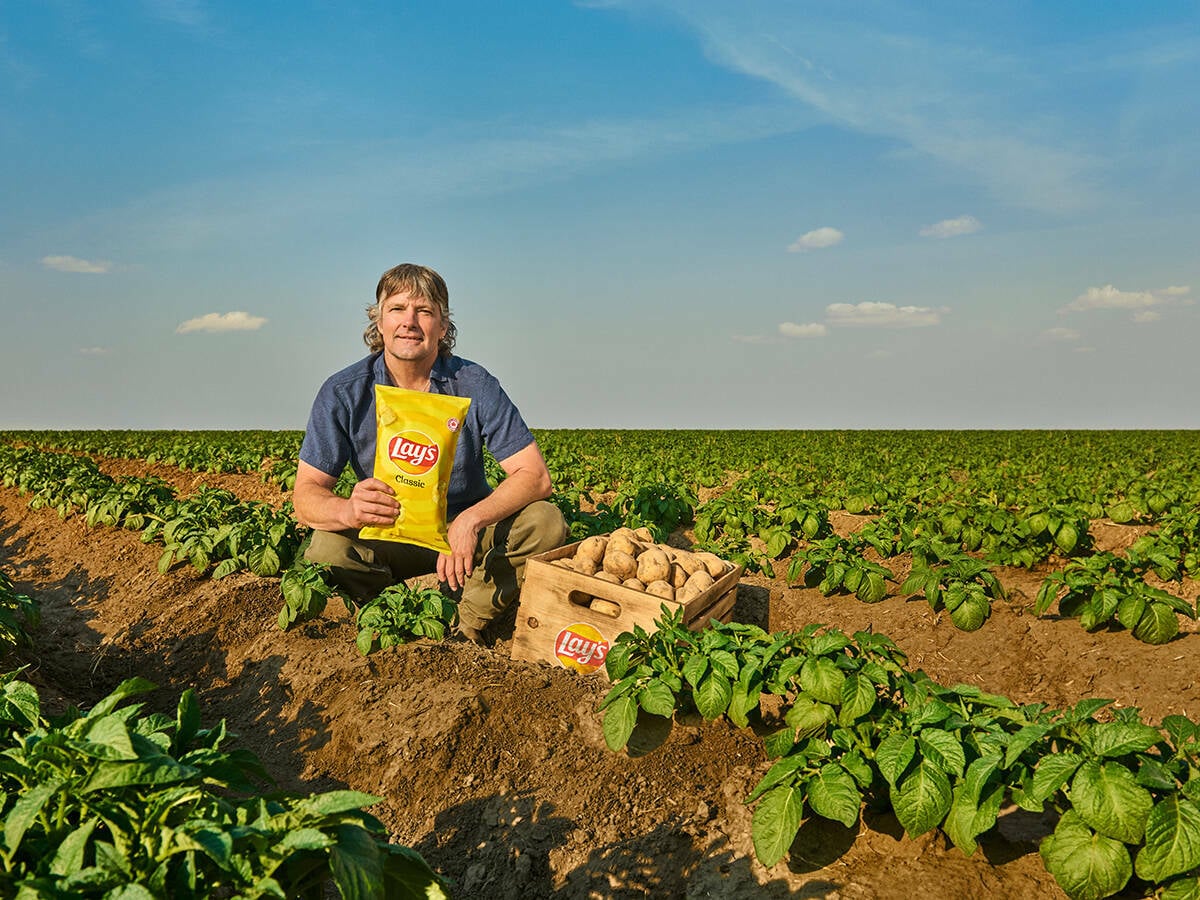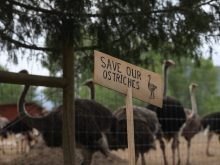Ticked off by GM-free Cheerios and A&W trumpeting the beef in its burgers is hormone free?
Then you’ll hate the Chipotle Scarecrow.
The scarecrow is the hero in a Tim Burton-style animated video depicting a bleak smoke-spewing factory where caged cows are extruded into a “beef-ish” product and robots inject chickens with a green liquid that instantly puffs them up to twice their size. The video, viewed nearly12 million times, is part of a marketing campaign by Chipotle Mexican Grill, which has 1,500 restaurants worldwide. There’s also a mobile game in which the winsome Chipotle Scarecrow goes on quests to “bring real food back to the people.”
Read Also

Alberta farmer invited to World Economic Forum
Southern Albertan farmer’s regenerative agricultural practices featured on panels at Davos where nations come together in partnership.
Farmers are right to be concerned by this type of portrayal of their business, said Cami Ryan, a research associate at the University of Saskatchewan who calls herself an “innovation-in-ag junkie.”
“This matters to us, because we want people to understand what we do on the farm,” said Ryan, who lives near Okotoks and is an avid blogger on ag issues.
But having conversations about agricultural practices isn’t easy, she told FarmTech attendees.
She offered a number of suggestions on how to be an effective advocate for agriculture.
First, start with those near to you, rather than trying to sway ardent critics.
“The most important conversations you have are the ones you have with your children, your nieces, your nephews and your grandchildren,” she said.
Second, step off the soapbox.
“You need to talk with someone, not at them. It’s about the relationship first.”
Farmers should also reach out to networks of people who are already talking about agriculture. Don’t try to tackle a lot of issues in one conversation, and search for common ground when it comes to values.
“Be brave and be confident, because you know more than you think you do,” she said. “Work to improve your argument, do a bit of research, choose your words wisely, and lead with your values. Tell your story and follow up with the facts.”
It’s hard to get people to pay attention to science, but remember that strident ag critics don’t speak for the majority.
“Social networking and social media have become the tools for the loud voices operating on the fringe and have completely amplified the whole problem,” said Ryan, whose Twitter handle is @DocCamiRyan.
“Most of what you hear that is derogatory is probably a small portion of the population, but this is their megaphone and it causes problems.”
And recognize that “there’s a whole new competitor out there,” she said.
“There is a lot of money going out into activist initiatives and you need to pay attention to that.… We need to respond to it as an industry.”
Blogs along with Twitter, Flickr, Instagram, and Facebook have been important sources of information for many people and farmers should be present in those forums.
More from the Alberta Farmer Express website: Stay calm, stick to the facts, and tell your story, says communications expert
“I think when you’re connecting and you’re online participating, you’re telling a story in a way,” she said in an interview.
“I think we’re starting to get better and starting to do more and I think the real plus in all of this is what the farmers do.
“They’re working the front lines. These are the guys who have to get out there and tell their stories.”
A&W’s Better Beef campaign holds a lesson for farmers — although they might not like it, says a communications expert.
The fast food chain’s ad campaign touting its switch to hormone-free beef has been “massively successful,” Shawn Brook, president of Issues Ink, told FarmTech attendees.
“Their job is to sell hamburgers, and this makes them sell hamburgers,” he said. “What makes it wrong is that we haven’t been out there telling people what the truth is.”
But farmers won’t win these PR battles if they go in “with the belief that the grocery-buying public is stupid,” he said.
“The reality is they’re incredibly smart people. Incredibly educated folks have those beliefs,” he said.
“(And) those ‘idiot’ urbanites are hungry for information.”
The best approach is to have “positive, proactive conversations with more people,” and to stick to the facts, even if people on the other side of the issues don’t.
“Our credibility is too critical to us to allow that to happen.”
Choosing fact-based core messages based on individual stories and personal passions will engage consumers in the right kind of conversation, said Brook.
“If you can… build the conversations around that, you become a pretty powerful storyteller and a pretty powerful ‘agvocate’ in our business.”
















